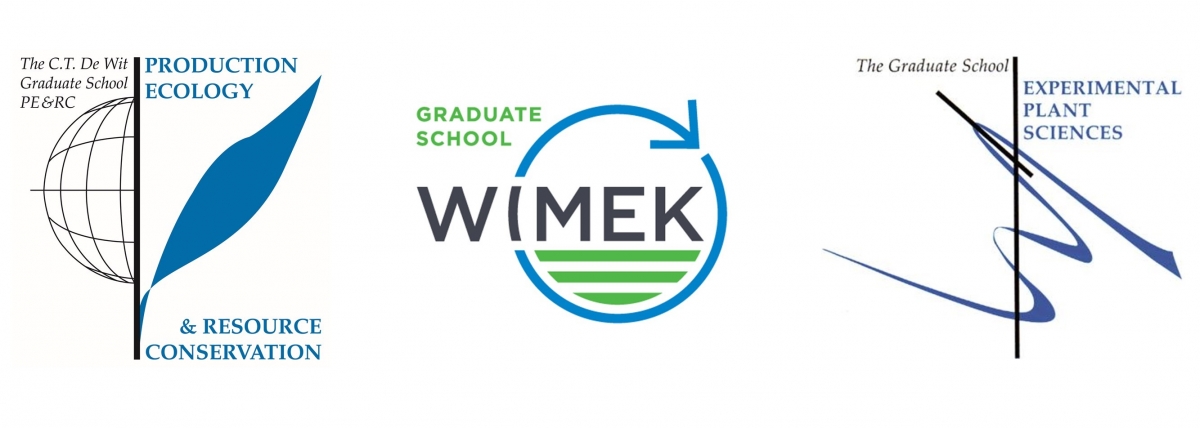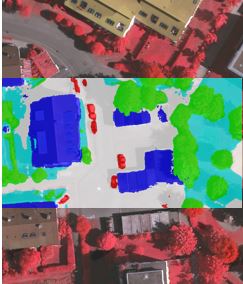Machine learning for spatial data
You are here

Introduction to machine learning
To be announced

The course will focus on the following topics:
- The machine learning methodology, and framing scientific problems as machine learning tasks
- Data preparation and representation
- Key algorithms for regression, classification, and clustering
- Qualitative and quantitative comparison of characteristics, (dis)advantages, and performance of a number of key algorithms
- Design and implementation of effective solutions based on chosen algorithms to solve practical problems
Through a series of lectures and practical exercises (in R), the participants will learn about different strategies and their pertinence for specific problems in environmental sciences, but the course will remain general for a broader audience. Participants are encouraged to bring their own problems in class and analyse data from their own research.
Programme
- Day 1 - morning: Introduction to machine learning, methodology and best practices
- Day 1 - afternoon: Introduction to R scripting, Practical on d ata preparation and representation, cross validation, training/test splits
- Day 2 - morning: lecture on regression methods: linear, LASSO, feature selection, trees, neural networks
- Day 2 - afternoon: practical on regression methods
- Day 3 - morning: lectures on classification methods: Bayesian, kNN, logistic, SVMs, ensembles, forests
- Day 3 - afternoon: practical on classification methods
- Day 4 - morning: lectures on unsupervised analysis: hierarchical, k-means, EM, PCA, t-SNE
- Day 4 - afternoon: practical on unsupervised analysis
- Day 5 - morning: Bring your own data – Frame your science question as a learning task and work with own data
- Day 5 - afternoon: Feedback/ discussion – Outlook on advanced/current topics (i.e. deep learning)
General information
| Target Group | The course is aimed at PhD candidates, postdocs, and other academics that are interested in machine learning applied to environmental data |
| Group Size | Min. 15 / Max. 20 participants |
| Course duration | 5 days |
| Language of instruction | English |
| Frequency of recurrence | To be determined |
| Number of credits | 1.5 ECTS |
| Lecturers | Dr Ioannis Athanasiadis (Laboratory of Geo-Information Science and Remote Sensing, Wageningen University & Research) Dr Gert Kootstra (Farm Technology, Wageningen University & Research) Dr Aalt Jan van Dijk (Bioinformatics, Wageningen University & Research) Prof. Dick de Ridder (Bioinformatics, Wageningen University & Research) |
| Prior knowledge | Basic skills in statistics are a plus. Practicals will be in R. A short introduction will be provided on the first day, but previous programming experience in R or Python is required |
| Location | Wageningen University Campus, if Corona measures allow this. The final decision on whether the course will be on WUR campus will be made before the term of free cancellation expires (so before 30 May 2021) |
| Options for accommodation | Accommodation is not included in the fee of the course, but there are several possibilities in Wageningen. For information on B&B's and hotels in Wageningen please visit proefwageningen.nl. Another option is Short Stay Wageningen. Furthermore Airbnb offers several rooms in the area. Finally, there are a number of groups on Facebook where students announce subrent possibilities and things like that. Examples include: Wageningen Room Subrent, Wageningen Room Sublets, Room Rent Wageningen, and Wageningen Student Plaza. Note that besides the restaurants in Wageningen, there are also options to have dinner on Wageningen Campus. |
More information
Dr. Claudius van de Vijver (PE&RC)
Email: claudius.vandevijver@wur.nl
Registration of interest
At this moment, this course is not scheduled yet. However, if you register your interest in this activity below, we will inform you as soon as the course is scheduled and registration of participation is opened.
